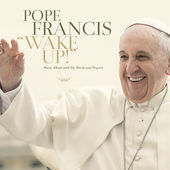I want to share an uplifting story about CHARITY. Sometimes throwing large sums of money and huge resources at a problem isn’t always the best way to provide CHARITY. I heard this story from a colleague, John Deedrick, as he lamented about the loss of his best friend, Chuck Herman. Chuck died in a freak accident as he was cutting a tree down and having it catch, twist, and fall in a different direction than intended and land on him, killing him. His friend was a Fire Chief in the Rochester, MN fire district.
Several years earlier, both Chuck and John read a book written by Bruce Wilkinson, titled, “You were born for this”. The two had recently formed a non-profit entity called, GREAT-DEEDS (www.greatdeeds.org), with the idea of performing random acts of kindness, as often as the opportunity arises, with as little as ten and twenty dollar bills, on a whim; i.e. lunches or groceries for hungry strangers, books, socks, shirts, etc., “see it, do it” during your daily routine. Many friends and prominent business people from Rochester were recruited to participate and to “fire at will” whenever the occasion arose to thank or help someone in a small way for any reason.
A little while after they formed GREAT-DEED’S, Chuck rode his motor cycle to Sturgis South Dakota for an annual weeklong event. Early Sunday a.m., he stopped at Wall Drug to stretch his legs. He stood in line to buy a twenty dollar “T” shirt when it dawned on him that he already had too many “T” shirts and that he should probably attend a local church and put it in the collection plate, instead. As he got back on his bike, he noticed inclement weather approaching and thought heading north, would avoid it. Several miles out of town, he noticed a little white church with cars in the lot and people walking in, so he rolled his motor cycle in, parked and took a seat. After hearing a wonderful message, he shook the pastor’s hand and handed him the twenty dollar bill, suggesting to him, to take his lovely wife out to brunch. The pastor handed it back and said he had three more sermons to give at three more neighboring parishes, but directed him to Lily, a parishioner who was about to head to Africa for a two week mission trip.
Chuck introduced himself to Lily and chatted for a spell. Lily was about to use her valuable two week vacation time to go volunteer at an orphanage in the center of a city in Zimbabwe with clothing, donations and bibles. He handed her the twenty and instructed Lily to buy soccer balls for the orphanage kids to play with instead of putting it towards less than fun activities. He then reluctantly shook her hand and left. Lily reluctantly agreed and left with the money, shaking her head, as if it were too weird to figure out, but promised she would buy the soccer balls. The donor doubted the money would end up where he requested, but finished his vacation and returned to Rochester. The woman doubted a soccer ball was good idea when other needs were so great, but stashed the cash and headed for Africa with a promise to keep.
Once Lily arrived at the orphanage, the director greeted and showed her the latest improvements, including a new, large group classroom. Lily advised that she promised a donor that she would buy soccer balls for the kids. The director balked at the idea of balls being kicked around inside the new orphanage hall. Lily queried about the adjoining, but unimproved lot owned by the orphanage, to which the director chided, “too dangerous”. There were sharp objects, needles, broken glass and things that could cause harm to the kids as well as the potential for nefarious activity and uncontrollable strangers in the poorest part of town. Lily fought back with the argument that Chuck gave her, in the need for kids to play and have fun. Lily volunteered to walk the grounds and clean it up and others joined in.
The landscape was very uneven and weedy, but they cleaned it up as best as possible. She and the director drove to town for supplies and to find the nearest sporting goods store. On the way, they passed some idle earthmoving equipment, parked nearby. Lily asked the director to pull over and she asked the owner/operator if he would smooth out the area, next to the orphanage and create a soccer field, to which he crassly said, “No, I don’t do charity work”. They turned and moved on. The door of the sporting goods store was locked and a sign said CLOSED, but Lily began to knock, incessantly, until someone came and unlocked it. In an unfriendly voice, he pointed out the CLOSED sign and told them to leave, adding that he was about to go out of business. She pled for him to look for soccer balls which she would gladly pay twenty dollars for. He said there was a barrel in the back with equipment in it and told her to help herself. She dug to the bottom and found three un-inflated soccer balls, went back to the owner and asked for him to pump them up for her. He said no, but sold her a pump and air needle and took her twenty dollars. On the way back, she asked the director to stop at the earth moving equipment one more time and one more time she was run off by the operator.
She repeated this for two more days and finally the curmudgeon operator said, “Lady, if I don’t have any work booked by Friday, I’ll clear the lot for you.” Not only did he clear it, he seeded it with grass left over from another job. Some local craftsmen, living in the area, fashioned simple soccer goals and the kids were excited to begin playing soccer on a real soccer field, once the grass filled in.
Lily returned to South Dakota and began to plan for fund raising efforts for her next trip to Zimbabwe. Nearly two years passed by. As she neared the departure date, she communicated with the director, who was very excited to surprise her with the events that unfolded as a result of her persistency and her twenty dollar purchase from her previous visit. In her absence, word had travelled to neighboring companies, organizations, villages and other soccer enthusiasts wanting to use real balls on a real soccer field and people started to show up. Money offers, to rent the facility for sponsored events, started to flow into the orphanage and the word spread to even farther reaching areas. The director informed Lily that, by renting the facility out, they make enough money to buy all the food, clothing, text books, cleaning supplies, etc. that it takes to run their orphanage, with money left over, thanks to her twenty dollar soccer ball purchase.
Since then, teams have formed by numerous villages and games and tournaments were scheduled. Entire villages of spectators began to show up, stimulating a micro economy of trade, concession sales and other positive activities. The nearby sporting goods store even reopened. Local church attendance increased. An even larger economy began to develop. Money, hundreds of donations and volunteer labor to make improvements to the field and school flooded in and, over time, it evolved into a nice soccer facility with bleachers, benches, and grass field, lined with chalk. With the cleaned up safe neighborhood, the church, the orphanage and school benefited, the city benefited, local companies benefited, the kids and families benefited and it all began from a twenty dollar bill.
Unaware of all that happened in Zimbabwe two years earlier, Chuck was back in Minnesota, in a heated discussion with the Rochester Mayor about some politically polarizing views and public events surrounding diversity and religious freedom. They ended the rhetoric with an agreement to disagree. It got uncomfortable in their verbal stand-off, so the Mayor switched subjects and asked about Chuck’s next motorcycle trip. That, in turn, jogged his memory about an email he got from the Minneapolis Mayor, so he retrieved it, turned the computer screen and asked Chuck, “Is this you?”
When Lily returned home in Wall, SD after the second trip to Zimbabwe, she knew she had to find the motorcycling fireman and thank him. She couldn’t remember his name, but thought he might be from Minneapolis or St. Paul, so she emailed the mayors of both cities and told them of her successful soccer ball story and asked them to help her find her fireman. They forwarded the email to all of the area fire stations, but they reported back to her, no positive results. She asked them to check other nearby cities, so one of the mayors forwarded the email to other Minnesota mayors. Then he wished her well and washed his hands of it.
Shocked by what he was reading, Chuck immediately responded to her email and got “the rest of the story”, as Paul Harvey used to say. It’s this story that I’m sharing now. He used this example to motivate many others who continue to further his dream of GREAT-DEED’S and John Deedrick shared it with me to keep it going, too. Twenty dollars can turn into millions or go up in flames. Truly “blind charity” occurred as no one expected these results from a twenty dollar donation turning into a million dollar windfall and soccer facility in a poor part of town in Zimbabwe.
 pe and Charity beads. This week’s Gospel message was one focused on HOPE, so I reflected and meditated on it to make it the topic of this article. Tis the season of HOPE. In fulfillment of scripture, God gave us the life, death and resurrection of Jesus and the HOPE of His second coming for our salvation. When baby Jesus was presented in the temple to the Holy Simeon and High Priestess, Anna, all their HOPE came to be true. There are parallels that I will stretch to prove a point or two, but I want to emphasize that Jesus didn’t need HOPE, He was and is HOPE for all of time and all of mankind.
pe and Charity beads. This week’s Gospel message was one focused on HOPE, so I reflected and meditated on it to make it the topic of this article. Tis the season of HOPE. In fulfillment of scripture, God gave us the life, death and resurrection of Jesus and the HOPE of His second coming for our salvation. When baby Jesus was presented in the temple to the Holy Simeon and High Priestess, Anna, all their HOPE came to be true. There are parallels that I will stretch to prove a point or two, but I want to emphasize that Jesus didn’t need HOPE, He was and is HOPE for all of time and all of mankind.
 Rome Italy – November 27th, 2015 – The Holy See announced today the international release of Pope Francis new album “Wake Up!”. A 11-track pop-rock-infused album. This album is a compilation of “…Pope Francis delivering hymns and excerpts from his speeches in Italian, English, Spanish and Portuguese, paired with different types of music,” Rolling Stone
Rome Italy – November 27th, 2015 – The Holy See announced today the international release of Pope Francis new album “Wake Up!”. A 11-track pop-rock-infused album. This album is a compilation of “…Pope Francis delivering hymns and excerpts from his speeches in Italian, English, Spanish and Portuguese, paired with different types of music,” Rolling Stone